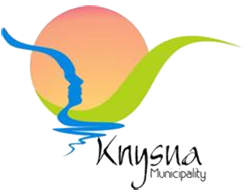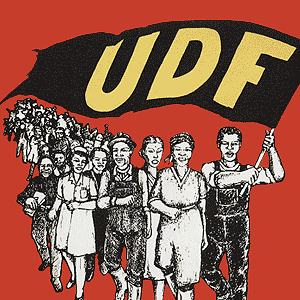
The African National Congress (ANC) is a social-democratic political party in South Africa. A liberation movement known for its opposition to apartheid, it has governed the country since 1994, when the first post-apartheid election installed Nelson Mandela as President of South Africa. Cyril Ramaphosa, the incumbent national President, has served as President of the ANC since 18 December 2017.

Soweto is a township of the City of Johannesburg Metropolitan Municipality in Gauteng, South Africa, bordering the city's mining belt in the south. Its name is an English syllabic abbreviation for South Western Townships. Formerly a separate municipality, it is now incorporated in the City of Johannesburg Metropolitan Municipality, Suburbs of Johannesburg.

The Azanian People's Organisation (AZAPO) is a South African liberation movement and political party. The organisation's two student wings are the Azanian Students' Movement (AZASM) for high school learners and the other being for university level students called the Azanian Students' Convention (AZASCO), its women's wing is Imbeleko Women's Organisation, simply known as IMBELEKO. Its inspiration is drawn from the Black Consciousness Movement inspired philosophy of Black Consciousness developed by Steve Biko, Harry Nengwekhulu, Abram Onkgopotse Tiro, Vuyelwa Mashalaba and others, as well as Marxist Scientific Socialism.

Knysna Local Municipality is a municipality part of Garden Route District Municipality located in the Western Cape Province of South Africa. As of 2011 the population is 68,659. Its municipal code is WC048.

Overstrand Municipality is a local municipality in the Western Cape province of South Africa. It is located along the Atlantic coast between Cape Town and Cape Agulhas, within the Overberg District Municipality. The principal towns in the municipality are Hermanus, Gansbaai and Kleinmond. As of 2011 it had a population of 80,432.

Cederberg Local Municipality is a local municipality which governs an area of the Western Cape province of South Africa stretching from the Cederberg mountains through the middle valley of the Olifants River to the Atlantic coast. It includes the towns of Clanwilliam, Citrusdal and Lamberts Bay, and the surrounding villages and farms. As of 2011 it had a population of 49,768. It is located within the West Coast District Municipality and has municipality code WC012.

Kannaland Municipality is a local municipality located within the Garden Route District Municipality in the Western Cape province of South Africa. The municipal area is situated in the western part of the Little Karoo and includes the towns of Ladismith, Calitzdorp and Zoar. As of 2011 it has a population of 24,767. Its municipality code is WC041.

Apartheid was a system of institutionalised racial segregation that existed in South Africa and South West Africa from 1948 to the early 1990s. Apartheid was characterized by an authoritarian political culture based on baasskap, which ensured that South Africa was dominated politically, socially, and economically by the nation's minority white population. According to this system of social stratification, white citizens had the highest status, followed by Indians and Coloureds, then black Africans. The economic legacy and social effects of apartheid continue to the present day.

The City of Johannesburg Metropolitan Municipality is a metropolitan municipality that manages the local governance of Johannesburg, South Africa. It is divided into several branches and departments in order to expedite services for the city. Zulu is the most spoken home language at 23.4% followed by English at 20.1%.
The Muldergate scandal, also known as the Information Scandal or Infogate, was a South African political scandal involving a secret propaganda campaign conducted by the apartheid Department of Information. It centred on revelations about the Department's use of a multi-million rand secret slush fund, channelled from the defence budget, to fund an ambitious series of projects in publishing, media relations, public relations, lobbying, and diplomacy. Most ambitiously, the fund was used to establish a new pro-government newspaper, the Citizen, and in attempts to purchase both the Rand Daily Mail and the Washington Star. The projects, involving a total amount of at least $72 million, aimed primarily to counter negative perceptions of the South African government in foreign countries, especially in the West.

The Soweto uprising was a series of demonstrations and protests led by black school children in South Africa that began on the morning of 16 June 1976.

The United Democratic Front (UDF) was a South African popular front that existed from 1983 to 1991. The UDF comprised more than 400 public organizations including trade unions, students' unions, women's and parachurch organizations. The UDF's goal was to establish a "non-racial, united South Africa in which segregation is abolished and in which society is freed from institutional and systematic racism." Its slogan was "UDF Unites, Apartheid Divides." The Front was established in 1983 to oppose the introduction of the Tricameral Parliament by the white-dominated National Party government, and dissolved in 1991 during the early stages of the transition to democracy.

The apartheid system in South Africa was ended through a series of bilateral and multi-party negotiations between 1990 and 1993. The negotiations culminated in the passage of a new interim Constitution in 1993, a precursor to the Constitution of 1996; and in South Africa's first non-racial elections in 1994, won by the African National Congress (ANC) liberation movement.
Robert Frederick Murray (Bob) Yuill was a municipal politician in Toronto, Ontario, Canada. He served on the North York council for twenty-four years, at first as a ward councillor and later as a member of the North York Board of Control. He was also a member of the Metro Toronto council.

During the 1950s and 1960s, Israel became an open critic of the apartheid regime in South Africa, hoping to establish good relations with black-majority countries in Africa. However, most African countries severed ties with Israel in 1973 due to economic threats by oil-rich countries in the Arab world. This situation led Israel to deepen its diplomatic ties with South Africa throughout the 1970s and 1980s.

Internal resistance to apartheid in South Africa originated from several independent sectors of South African society and took forms ranging from social movements and passive resistance to guerrilla warfare. Mass action against the ruling National Party (NP) government, coupled with South Africa's growing international isolation and economic sanctions, were instrumental in leading to negotiations to end apartheid, which began formally in 1990 and ended with South Africa's first multiracial elections under a universal franchise in 1994.
Dr. Nthato Harrison Motlana was a prominent South African businessman, physician and anti-apartheid activist.

Rowan Cronjé was a Rhodesian politician who served in the cabinet under prime ministers Ian Smith and Abel Muzorewa, and was later a Zimbabwean MP. He emigrated to South Africa in 1985 and served in the government of Bophuthatswana.

Devikarani Priscilla Sewpal Jana was a South African human rights lawyer, politician and diplomat of Indian descent. As a member of the African National Congress (ANC) during the anti-apartheid movement, she participated in both legal activism as well as in the underground movement to end apartheid. She represented many significant figures in the movement, including South African president Nelson Mandela, Winnie Madikizela-Mandela, Steve Biko, Govan Mbeki, Walter Sisulu, and Archbishop Desmond Tutu. Jana was one of the very few South Africans who had access to political prisoners, including Mandela, in the maximum security Robben Island prison, and served as an emissary for coded messages between the political prisoners and the ANC leadership.
The anti-apartheid movement was a worldwide effort to end South Africa's apartheid regime and its oppressive policies of racial segregation. The movement emerged after the National Party government in South Africa won the election of 1948 and enforced a system of racial segregation through legislation. Opposition to the apartheid system came from both within South Africa and the international community, in particular Great Britain and the United States. The anti-apartheid movement consisted of a series of demonstrations, economic divestment, and boycotts against South Africa. In the United States, anti-apartheid efforts were initiated primarily by nongovernmental human rights organizations. On the other hand, state and federal governments were reluctant to support the call for sanctions against South Africa due to increasing cold war demands and profitable economic ties. The rift between public condemnation of apartheid and the U.S government's continued support of the South African government delayed efforts to negotiate a peaceful transfer to majority rule. Eventually, a congressional override of President Reagan's veto resulted in passage of the Comprehensive Anti-Apartheid Act in 1986. However, the extent to which the anti-apartheid movement contributed to the downfall of apartheid in 1994 remains under debate.